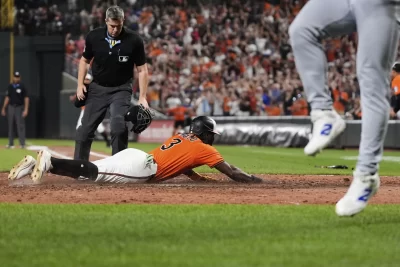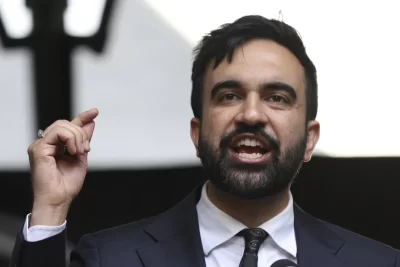
BEIJING — The decision came down in the midst of a brisk, sunny day in Beijing, after a late-night hearing that stretched into morning.
There was never much doubt about the outcome.
That’s the way it goes with the Russians.
They dope. They’re caught. They slink away to the next competition with no real ramifications.
Why would they change their chemically enhanced ways?
If the International Olympic Committee had shown even a hint of a backbone when dealing with the country that ran a massive doping scheme at Sochi in 2014, there probably wouldn’t have been any need for a ruling Monday clearing the way for 15-year-old phenom Kamila Valieva to go for an expected gold medal in women’s figure skating with a program that now includes a positive drug test.
If the Russians had been kicked out of an Olympics or two — the bare minimum they deserved for treating international doping rules with roughly the same seriousness that Nicolas Cage gives to potential movie scripts — they might’ve been compelled to actually clean up their act before the world’s winter athletes descended on locked-down China.
A good start would’ve been the 2016 Rio Olympics. Instead, the IOC rejected the World Anti-Doping Agency’s recommendation that Russia be banned from those Summer Games, even after an independent investigation left little doubt the country ran a state-sponsored doping operation of staggering proportions in Sochi.
Two years later, with enough damning evidence to put the Russians on par with the old East German doping dynasty, the IOC responded with a sham punishment that merely required them to buy some new uniforms and compete in Pyeongchang as “Olympic Athletes from Russia.”
Finally, after Russia threw roadblocks in front of every opportunity to come clean about its nefarious ways, the Court of Arbitration for Sport — with the IOC’s tacit approval — came up with sanctions in name only for the Tokyo and Beijing games.
Instead of OAR, the Russians have been forced to compete as ROC — Russian Olympic Committee.







